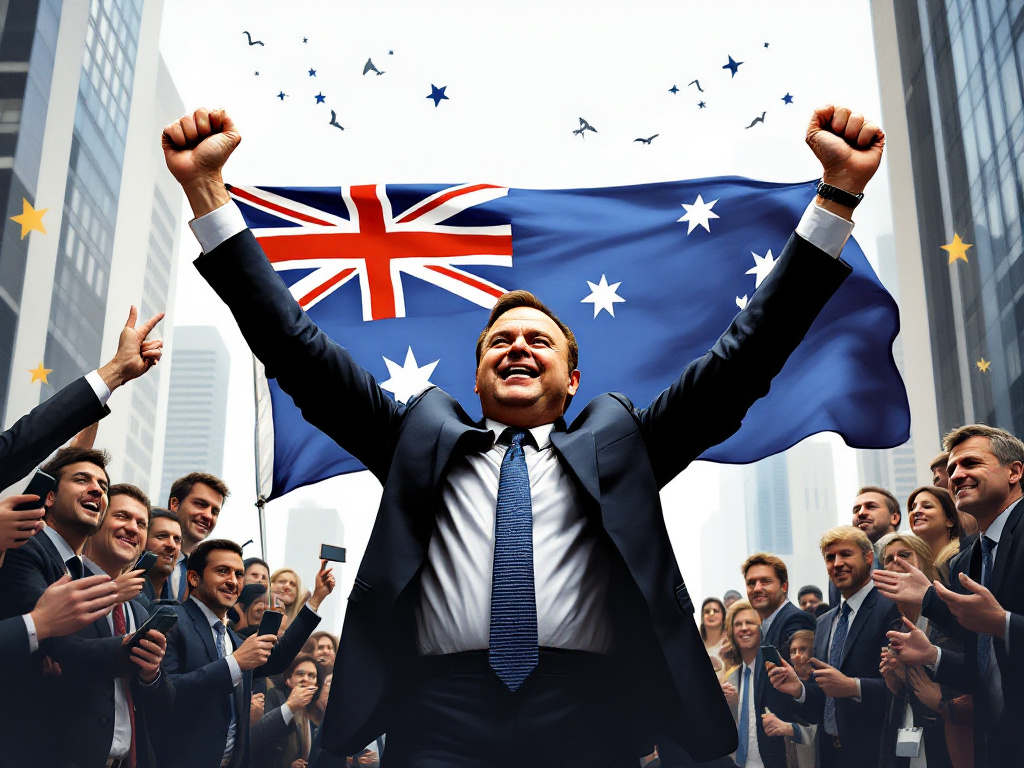Articles in this Cluster
05-05-2025
In a TV interview, President Donald Trump said he will not seek a third term, despite past comments and “Trump 2028” merchandise fueling speculation. He acknowledged the US Constitution’s two-term limit and named potential Republican successors like Vice-President JD Vance and Secretary of State Marco Rubio. Trump defended his tariff-driven economic strategy as a “transition period,” suggested tariffs could be permanent, and downplayed concerns about reduced consumer goods. Pressed on due process and deportations, he deferred to his lawyers and the Supreme Court. He said he’s not considering military action against Canada, floated annexing Greenland as unlikely but not ruled out, and defended maintaining an immigration emergency despite lower illegal crossings, citing ongoing legal and enforcement challenges.
Entities: Donald Trump, United States Constitution, JD Vance, Marco Rubio, Republican Party • Tone: analytical • Sentiment: neutral • Intent: inform
05-05-2025
CNN analysis argues that President Trump is increasingly disregarding constitutional and institutional limits, openly questioning his obligation to uphold the Constitution and defying federal courts, including a Supreme Court order. The piece highlights his use of executive power to pressure institutions like universities and law firms, promotion of strongman-style symbolism (e.g., sharing a papal image of himself, planning a military parade on his birthday), and rhetoric framing critics as unpatriotic. It also critiques his economic approach—particularly sweeping tariffs on China—as detached from everyday realities, warning of higher consumer costs, supply shortages, and small business harm. The article contends Trump is empowered by loyal appointees and acquiescent Republicans, raising concerns about authoritarian drift and potential political and economic fallout.
Entities: Donald Trump, U.S. Constitution, U.S. Supreme Court, Republican Party, China tariffs • Tone: analytical • Sentiment: negative • Intent: critique
05-05-2025
In a CNN interview, former Vice President Mike Pence criticized President Donald Trump’s broad-based tariff strategy, warning it will cause inflation, consumer “price shock,” and potential shortages once a 90-day pause ends. He contrasted the first Trump administration’s targeted trade measures with the current indiscriminate tariffs on allies and adversaries, advocating instead for free trade with democratic partners and toughness on authoritarian regimes. Pence also rebuked Trump’s wavering support for Ukraine, stressed that Vladimir Putin seeks conquest rather than peace, and condemned Trump’s pardons of January 6 rioters as sending “the wrong message.” Fresh off receiving the JFK Profile in Courage Award for upholding the 2020 election certification, Pence said he will publicly press conservative principles, including keeping everyday goods affordable, which he framed as part of the American dream.
Entities: Mike Pence, Donald Trump, tariffs, Ukraine, Vladimir Putin • Tone: analytical • Sentiment: negative • Intent: critique
05-05-2025
In an NBC interview, President Donald Trump said he would not rule out using military force to annex Greenland, arguing the U.S. “needs” the Danish territory for national security and its strategic Arctic position and resources. He acknowledged it’s unlikely but “certainly” possible. Greenland and Denmark have repeatedly rejected U.S. control, with Greenland’s prime minister insisting the island decides its own future. Trump has also floated annexing Canada but called military action there “highly unlikely,” ahead of a planned meeting with Canadian Prime Minister Mark Carney.
Entities: Donald Trump, Greenland, Denmark, United States, Arctic • Tone: urgent • Sentiment: negative • Intent: inform
05-05-2025
China’s garment hub of Guangzhou, which supplies a large share of the world’s cheap clothing via platforms like Shein, Temu, and Amazon, is reeling from newly escalated U.S.-China tariffs. Small, tightly networked workshops with thin margins report sharp drops in overseas orders, layoffs, and closures. A factory owner who once produced 40,000 dresses a month for Shein now makes half and has cut his workforce from 25 to 10; Amazon sellers say tariffs have made business unviable. While economists warn of mass job losses, many manufacturers are scrambling to adapt—shifting production to lower-cost regions or other countries and seeking new buyers in Europe and Southeast Asia—betting that global demand for affordable apparel will persist.
Entities: Guangzhou, Shein, Temu, Amazon, U.S.-China tariffs • Tone: analytical • Sentiment: negative • Intent: inform
05-05-2025
Princeton scholar Rory Truex argues that Donald Trump’s China policy shifted from early ambiguity to sharp confrontation, driven largely by Trump’s personal, proto-authoritarian instincts rather than a coherent strategy. He sees tariffs, aggressive rhetoric, and tech restrictions as escalatory tactics that are often counterproductive, potentially benefiting Beijing by validating its narratives and hardening its resolve. Truex suggests U.S. policy debate has grown hawkish and performative, pressuring experts to adopt tougher stances, while Trump’s approach has not produced a broader reset and may ultimately strengthen China’s hand.
Entities: Rory Truex, Donald Trump, China, United States, tariffs • Tone: analytical • Sentiment: negative • Intent: analyze
